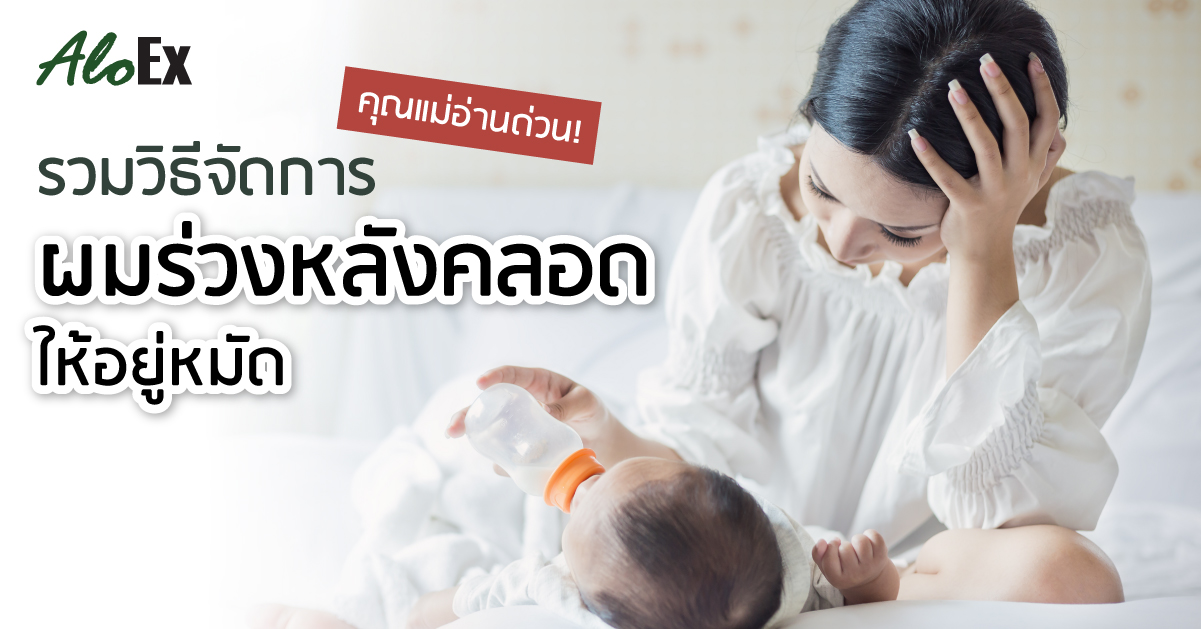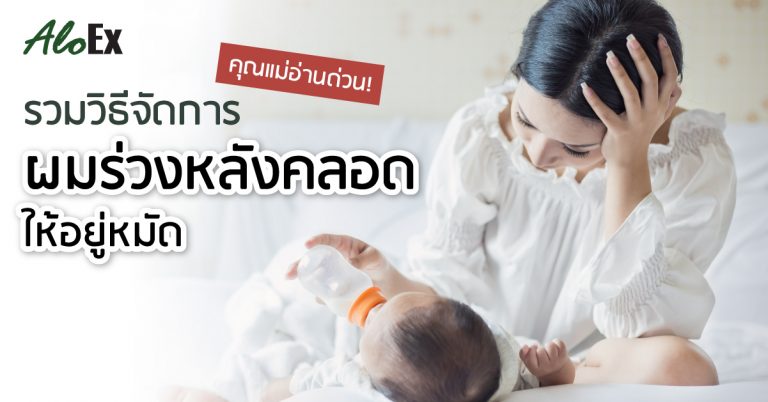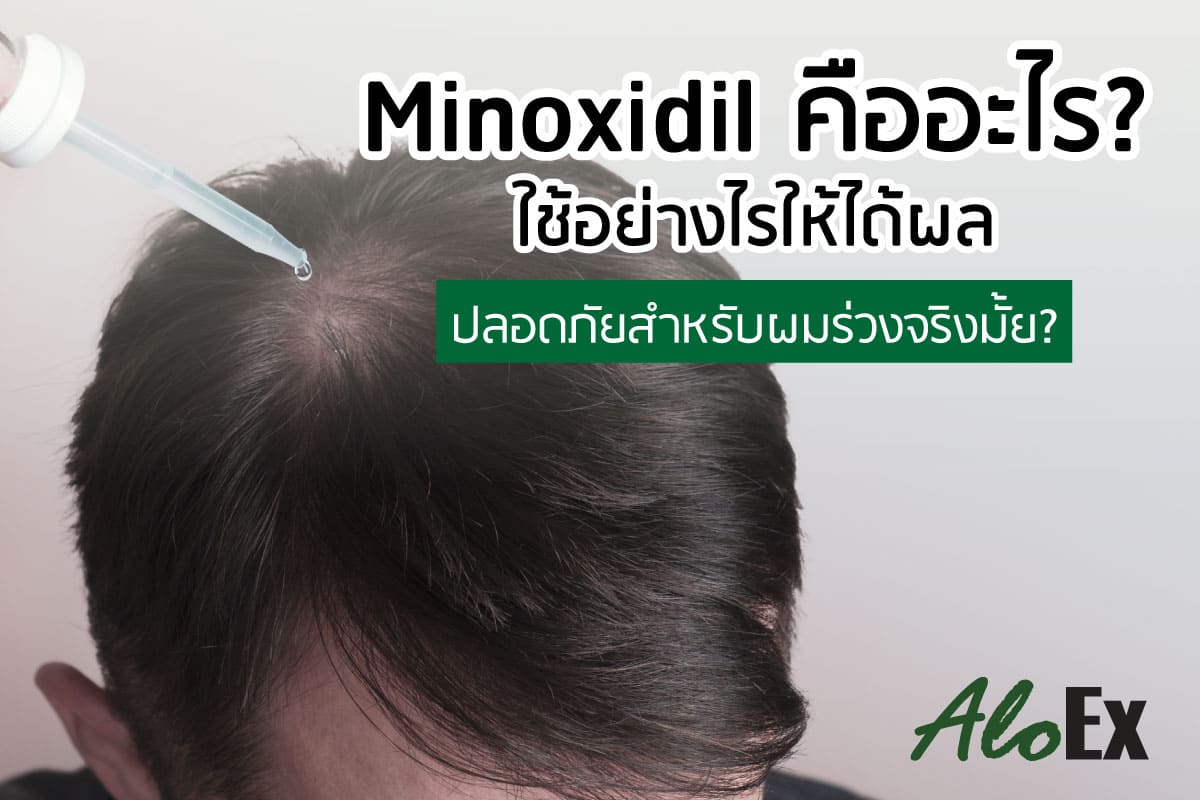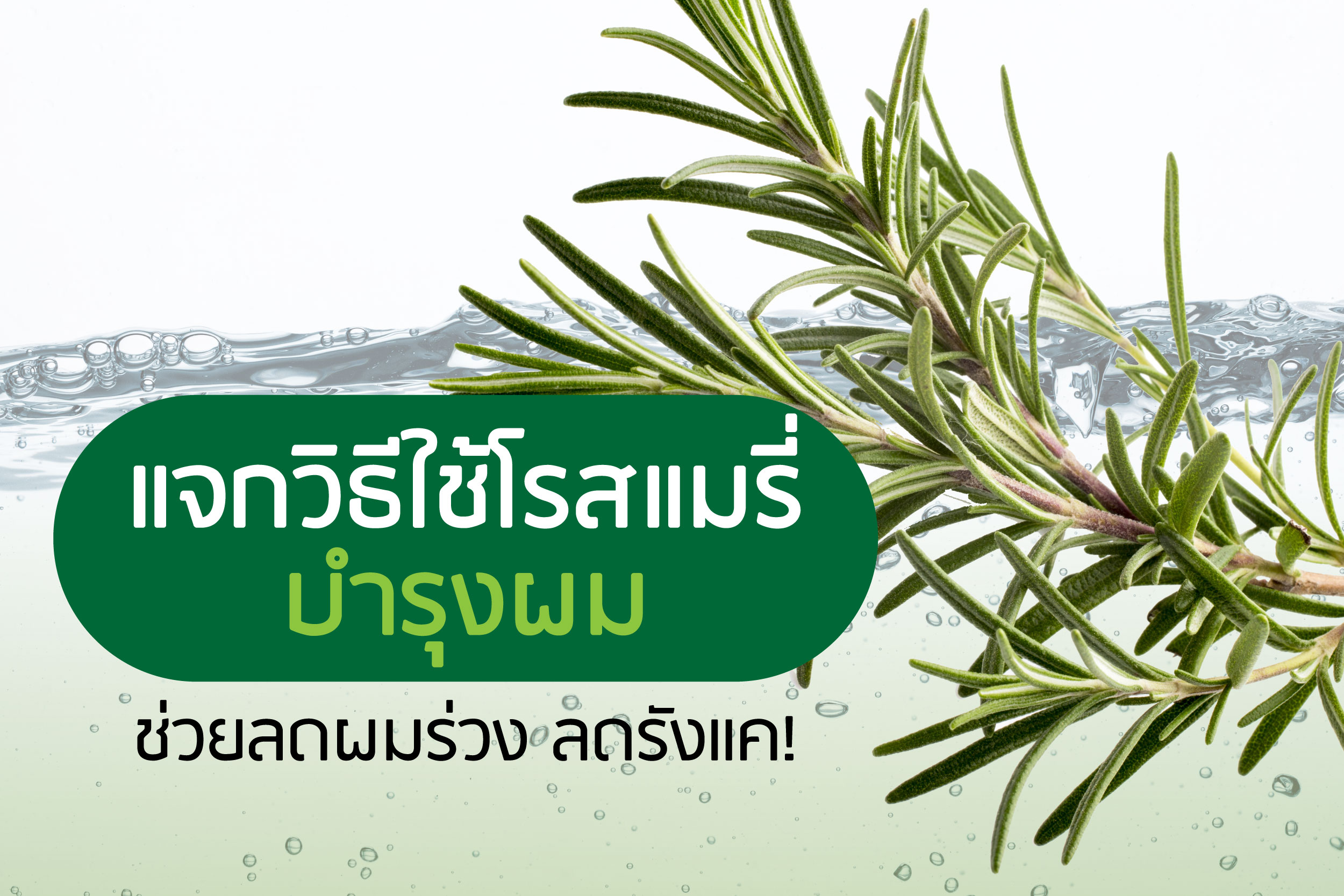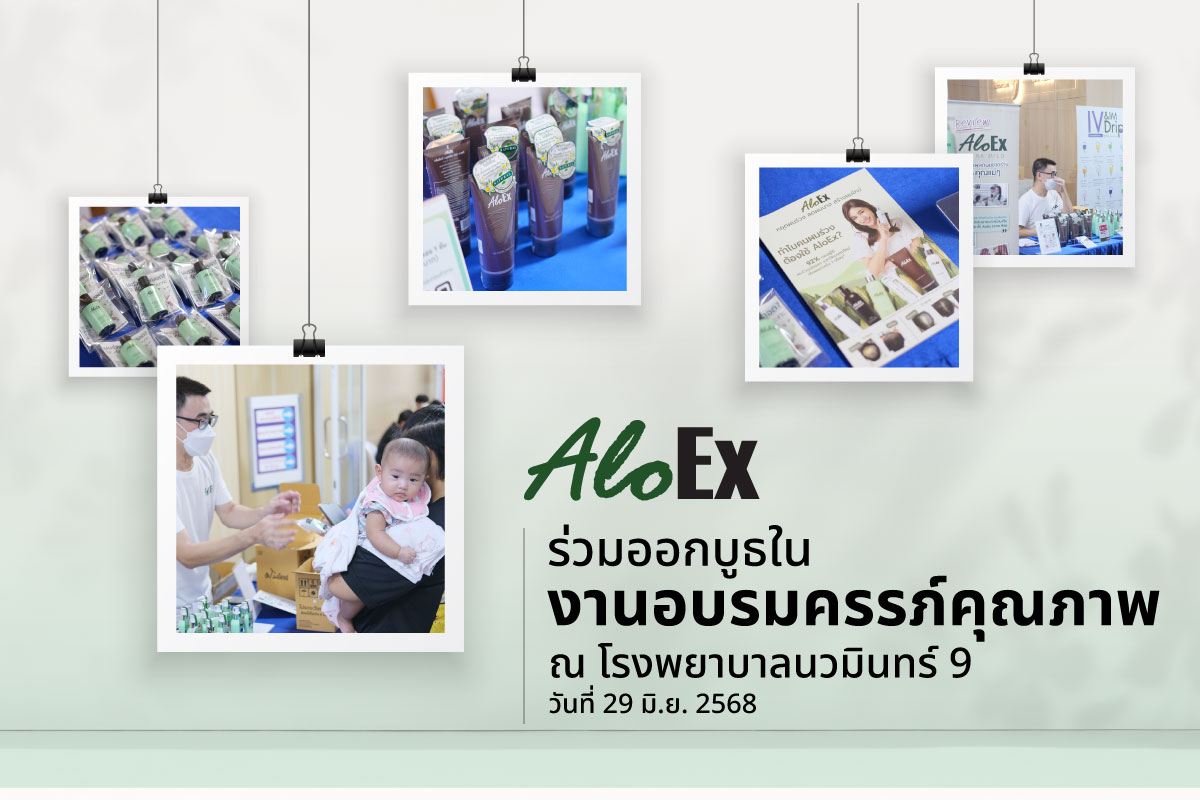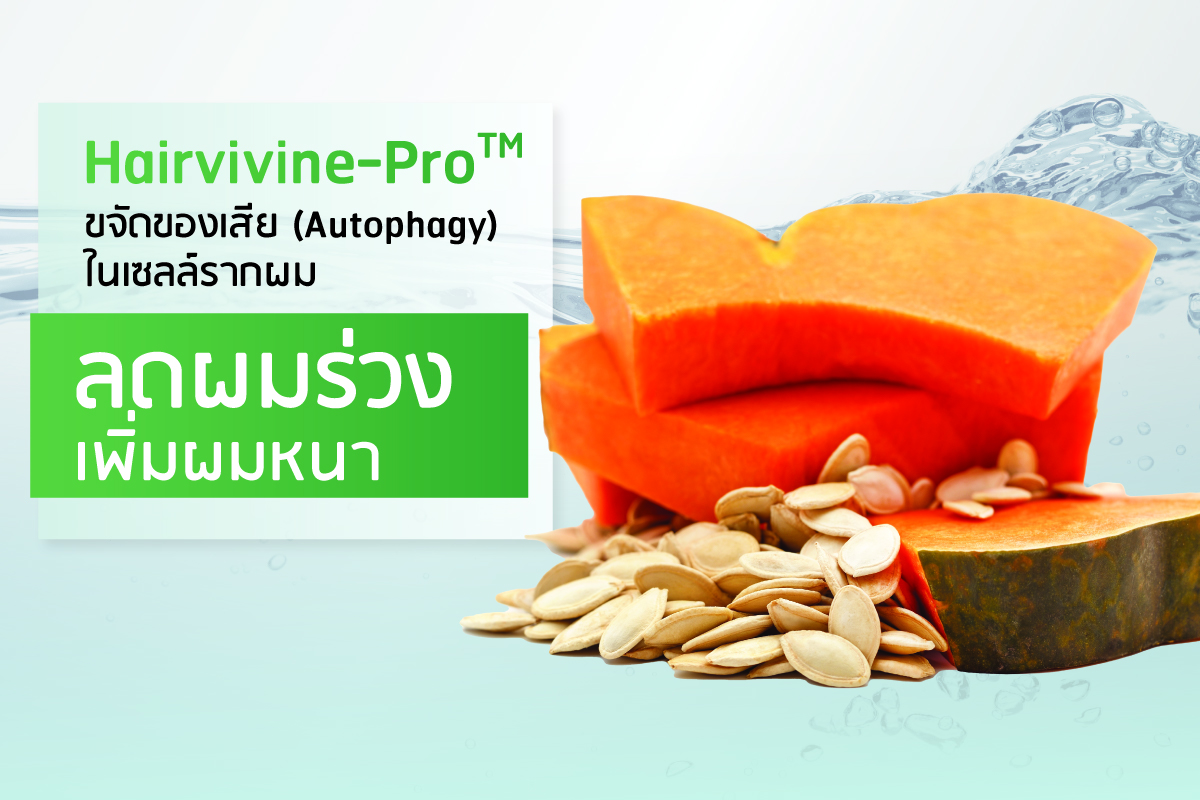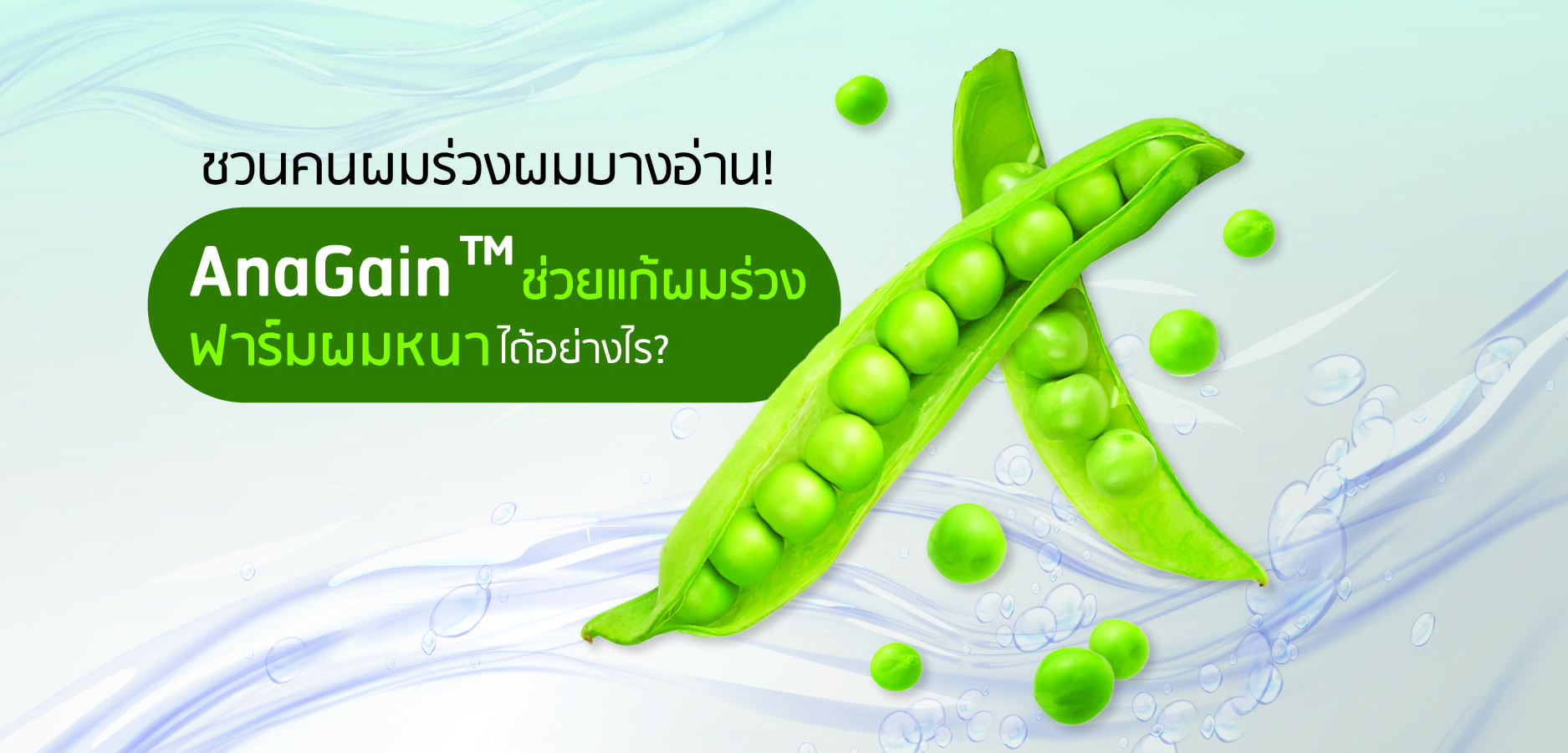Don't be discouraged if you're experiencing hair loss, moms! We're here to answer all your questions about postpartum hair loss. What causes it, how can you care for your hair, and is it dangerous? Let's find out with AloEx.
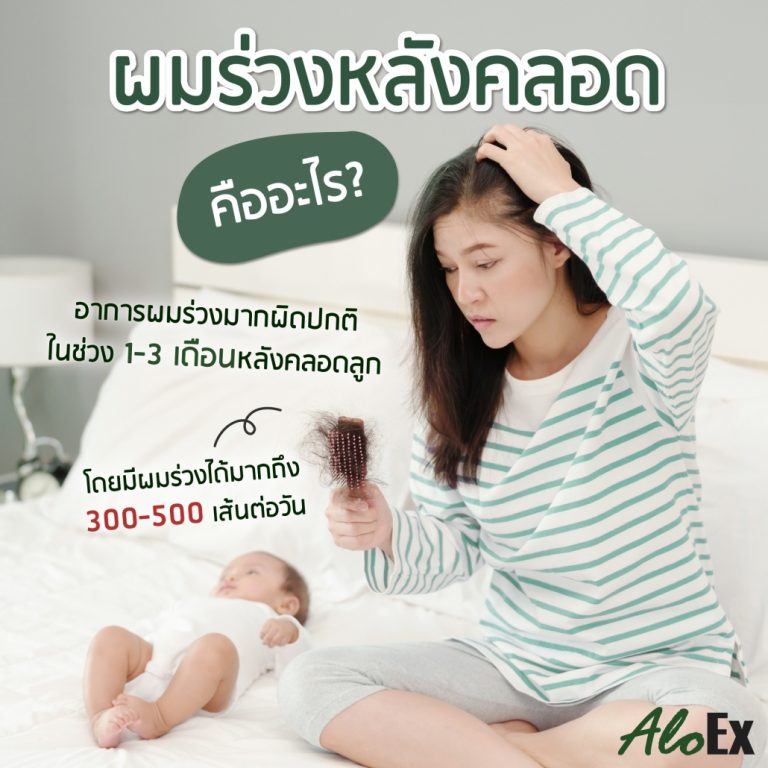
What is postpartum hair loss?
Postpartum Hair Loss One of the symptoms many new mothers experience after giving birth is postpartum hair loss. This condition involves temporary, excessive hair shedding, which can be noticed by the unusually large amount of hair lost. Some mothers may lose as many as 300–500 strands of hair. The number of strands lost per day differs from the average person, who typically loses about 100 strands daily. Some mothers experiencing severe postpartum hair loss may notice thinning hair or even baldness as a result.
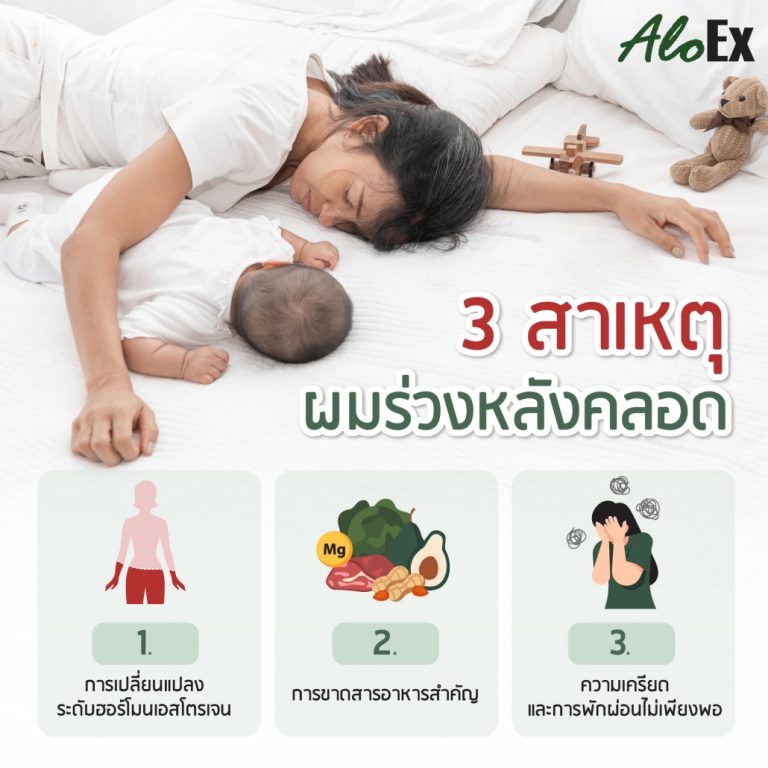
Causes of Postpartum Hair Loss
- Changes in estrogen hormone
- A lack of essential nutrients for scalp and hair care.
- Stress and insufficient rest
Changes in estrogen hormones in the body are considered the most significant cause of postpartum hair loss. This is because estrogen hormones play a role in nourishing hair, making it stronger and promoting longer growth. Estrogen levels increase during pregnancy and then drop suddenly after childbirth, causing the hair growth cycle to return to its normal state. This leads to significant postpartum hair loss, which is caused not only by abnormally low estrogen levels, but also by the hormone dihydrotestosterone (DHT), which contributes to hair loss.
Postpartum hair loss can occur when mothers do not receive enough nutrients to support hair growth. During pregnancy, a significant portion of nutrients is allocated to nourish the developing baby, which can unintentionally lead to nutritional deficiencies. However, this deficiency may not result in noticeable hair loss for some mothers. However, when combined with changes in estrogen levels in the body, it further weakens and damages hair, making it more prone to breakage and hair loss after childbirth. Additionally, new hair growth becomes slower, and the hair appears dry, coarse, and less healthy than before.
Stress and insufficient rest are also among the causes that can lead to hair loss. Most new mothers often struggle with irregular sleep patterns due to caring for their babies both day and night, leading to insufficient rest for their bodies' needs. When the body lacks rest, the cells in the scalp slow down their activity, resulting in slower hair growth. Additionally, this lack of rest can lead to accumulated stress, which increases cortisol levels in the body. This, in turn, directly weakens hair strands, making them more prone to breakage and hair loss.
When does postpartum hair loss occur?
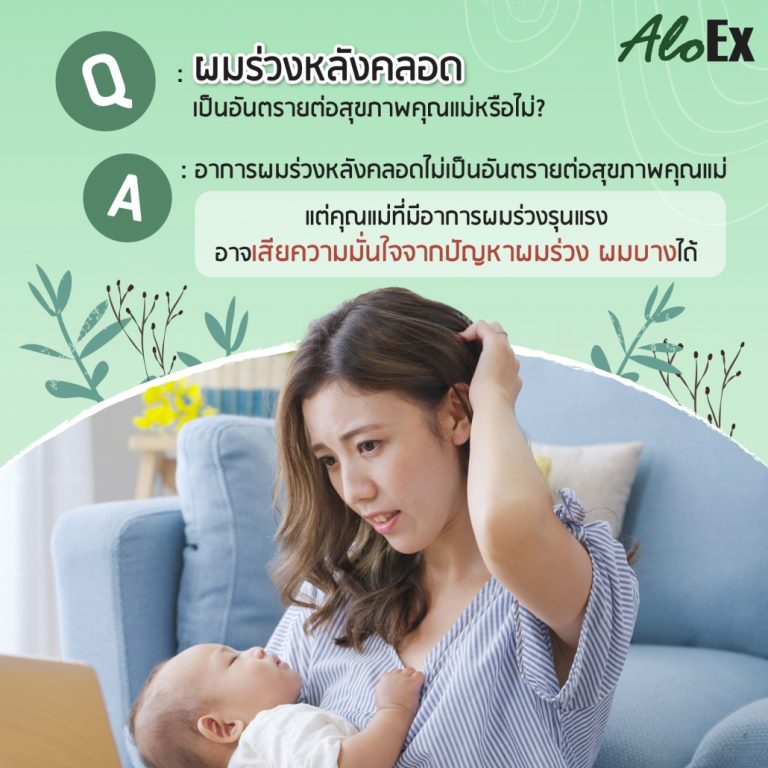
Hair loss in mothers can occur in two phases: hair loss during pregnancy and hair loss after childbirth. Hair loss after childbirth is commonly observed within the first 1-3 months postpartum. However, in some mothers, hair loss may persist for up to 6 months after giving birth. Nonetheless, hair loss after childbirth typically improves gradually over 6-12 months following childbirth.
Is postpartum hair loss dangerous for mothers?
Postpartum hair loss is not harmful to a mother's physical health. However, mothers experiencing severe hair loss after childbirth may lose confidence due to significant hair thinning or baldness, which can take a long time to treat and restore hair to its original thickness.
Can postpartum hair loss resolve on its own?
Postpartum hair loss is a temporary condition that occurs due to sudden hormonal changes in the body. It typically takes about 6-12 months for the body to adjust and recover. When the body adjusts and hormone levels return to balance, postpartum hair loss will improve, with less hair shedding and new hair growth. However, mothers who feel concerned about postpartum hair loss can care for their hair and scalp through various methods, such as using anti-hair loss shampoos, applying hair loss treatment products, consuming foods that help nourish hair, or cutting their hair short for easier maintenance, among other options.
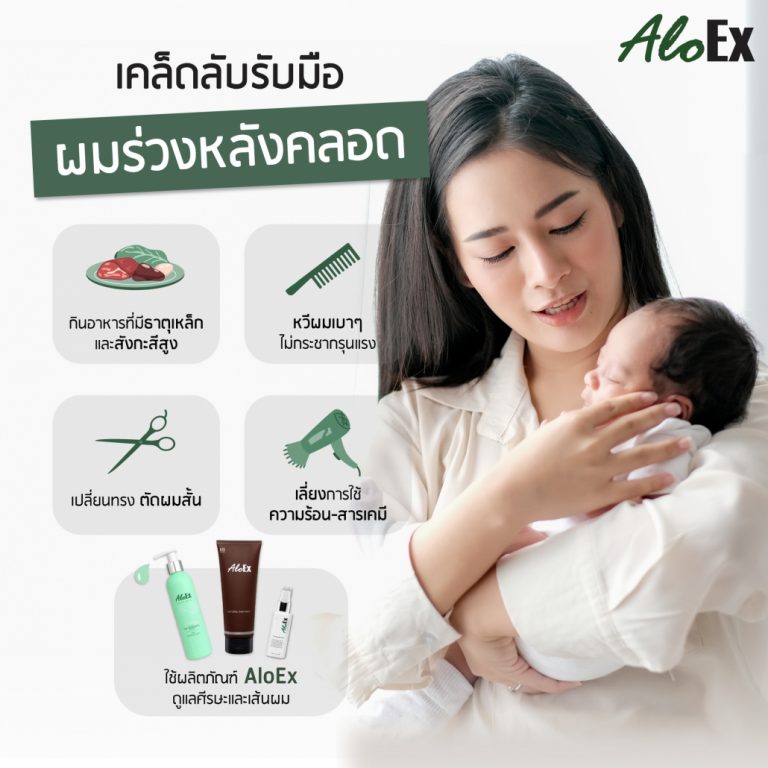
How to Care for Postpartum Hair Loss
- Eat foods that nourish the scalp and hair.
Mothers experiencing postpartum hair loss should consume a balanced diet from all five food groups, with an emphasis on foods rich in iron, zinc, protein, and biotin. These nutrients help replenish deficiencies and directly nourish the scalp and hair, promoting strength and health from within.
- Iron Helps transport red blood cells and oxygen to nourish the scalp and hair. New mothers may experience iron deficiency due to blood loss during childbirth. Therefore, it is recommended to consume foods rich in iron to replenish the body, such as red meat, liver, dark green vegetables, fish, seafood, egg yolks, whole grains, almonds, and peanuts.
- Zinc Zinc is a mineral that the body cannot produce on its own. It helps the body function properly and repairs the scalp and hair, making them strong. Mothers who experience hair loss after childbirth can increase their zinc intake by eating red meat, oysters, seafood, fish, and legumes. The general population should consume at least 15 mg of zinc per day.
- Protein It is a nutrient that helps produce keratin, a key structural component in the skin, scalp, hair, and nails. Hair contains up to 90% keratin, and a lack of protein can lead to hair loss. Mothers experiencing postpartum hair loss can consume egg yolks, leafy greens, tofu, yogurt, milk, butter, and cheese to increase their protein intake.
- Biotin Biotin is an essential nutrient that helps strengthen hair and reduce hair loss caused by various factors. It can be found in foods such as butter, milk, organ meats, egg yolks, whole grains, nuts, soybeans, bananas, and various vegetables. Pregnant women or mothers experiencing postpartum hair loss should consume a minimum of 30-35 micrograms of biotin per day.
- Avoid brushing your hair vigorously and using heat or chemicals on it.
Brushing hair vigorously can cause already weak and fragile strands to break and become tangled in the brush, leading to increased hair loss. Additionally, it indirectly damages the scalp. Using heat tools such as hot hair dryers, straighteners, or chemical treatments further harms the hair, as these practices strip the scalp of its natural moisture, leaving the hair brittle and prone to breakage. The hair appears dry, damaged, and frizzy. To help, your mother can use a cool-air setting on the hair dryer and pat the hair dry with a towel to speed up the drying process. She should also avoid coloring or using chemical treatments until the postpartum hair loss improves.
- Change your hairstyle or get a short haircut to make it easier to maintain.
For mothers with long hair experiencing postpartum hair loss, switching to a short hairstyle can make hair care easier in several ways. For example, short hair dries faster without the need for a hairdryer, reducing the burden on hair roots that have to support the weight of longer strands. Additionally, shorter hair can appear thicker and requires fewer nutrients to maintain strength and health.
- Use hair care products to help reduce postpartum hair loss.
In addition to nourishing hair from within through diet, mothers experiencing postpartum hair loss can also choose to use scalp and hair care products to strengthen hair, reduce hair loss, thinning, and address other hair concerns such as dry, damaged, frizzy hair, oily scalp, itching, dandruff, and acne. It is important to select products that are highly gentle and free from harsh chemicals that may irritate the scalp and skin. AloEx Extra Mild Shampoo Gentle Anti-Hair Loss Shampoo for Mothers Experiencing Hair Loss During Pregnancy and Postpartum
- Rich in 18 concentrated herbal extracts known for their properties to help reduce hair loss and stimulate new hair growth.
- Helps thoroughly cleanse dirt, dust, smoke, pollutants, and residual chemicals from the scalp without damaging the skin or stripping away its natural moisture.
- Contains extracts of safflower and butterfly pea flowers, which help inhibit the 5α-reductase enzyme, thereby reducing the causes of hair loss influenced by the hormone dihydrotestosterone (DTH). Additionally, it helps strengthen hair follicle cells, preventing them from falling out easily.
- Contains rice bran, which helps replenish the protein that hair and scalp need. Prevents hair loss, stimulates new hair growth, and promotes shiny, dark hair by effectively delaying graying and adding moisture to the scalp and hair.
- There are many other extracts, such as aloe vera, kaffir lime, Indian gooseberry, barleria, jasmine, and centella asiatica, which help restore scalp health and reduce common hair problems, such as itchy scalp, dandruff, acne, excess oil, oily hair, and dry, damaged, frizzy hair.
- Free from harmful chemicals that may irritate the skin and prohibited substances for mothers, including SLS/SLES, sulfates, silicones, parabens, alcohol, and fragrance. This ensures mothers can worry less about potential harmful residues that might harm their baby's delicate skin. Say goodbye to concerns about allergies or irritation, as this product is safe for sensitive skin.
In addition, mothers can use other AloEx scalp and hair care products to address hair problems more precisely and effectively.
- AloEx Natural Hair Mask This natural treatment is suitable for all hair types. It helps reduce hair breakage and loss, and it minimizes brittleness caused by heat, chemicals, and various pollutants. It replenishes moisture lost during washing and restores it to the hair and scalp. It can be used to nourish the entire scalp without clogging pores or causing acne. It allows mothers to experience soft, moisturized hair with volume from the first use.
- AloEx Hair Regrowth Serum Hair Thickening Serum reduces thinning and hair loss by delivering essential nutrients directly to the scalp and hair. It restores health, strengthens hair, and increases moisture. It also enhances the hair's protective barrier against heat and pollution, balances scalp oil, and prevents excessive oiliness or dryness.
Summary of “Postpartum Hair Loss” That Mothers Should Know!
- Postpartum hair loss is caused by sudden hormonal changes, combined with nutrient deficiencies, stress, and insufficient rest.
- Postpartum hair loss is commonly observed during the first 1-3 months after childbirth and typically resolves on its own within 6-12 months.
- Postpartum hair loss is a temporary, severe hair shedding condition, with approximately 300-500 hairs falling out per day. While it is not harmful to physical health, it may cause psychological distress.
- Postpartum hair loss can be managed and alleviated by consistently maintaining the health of your scalp and hair. This includes consuming foods rich in iron, zinc, protein, and biotin, which help nourish hair from within. Additionally, avoiding heat styling is recommended. - Chemicals that make hair brittle and prone to breakage. Gently combing your hair to prevent breakage and using a gentle, hair-loss shampoo helps care for your hair from the outside, along with treatments, serums, and other hair-loss prevention products.
AloEx Hair Loss Treatment and New Hair Growth Product from Nature That Mothers Trust
For inquiries or to learn more about AloEx products, please contact us through the following channels.
